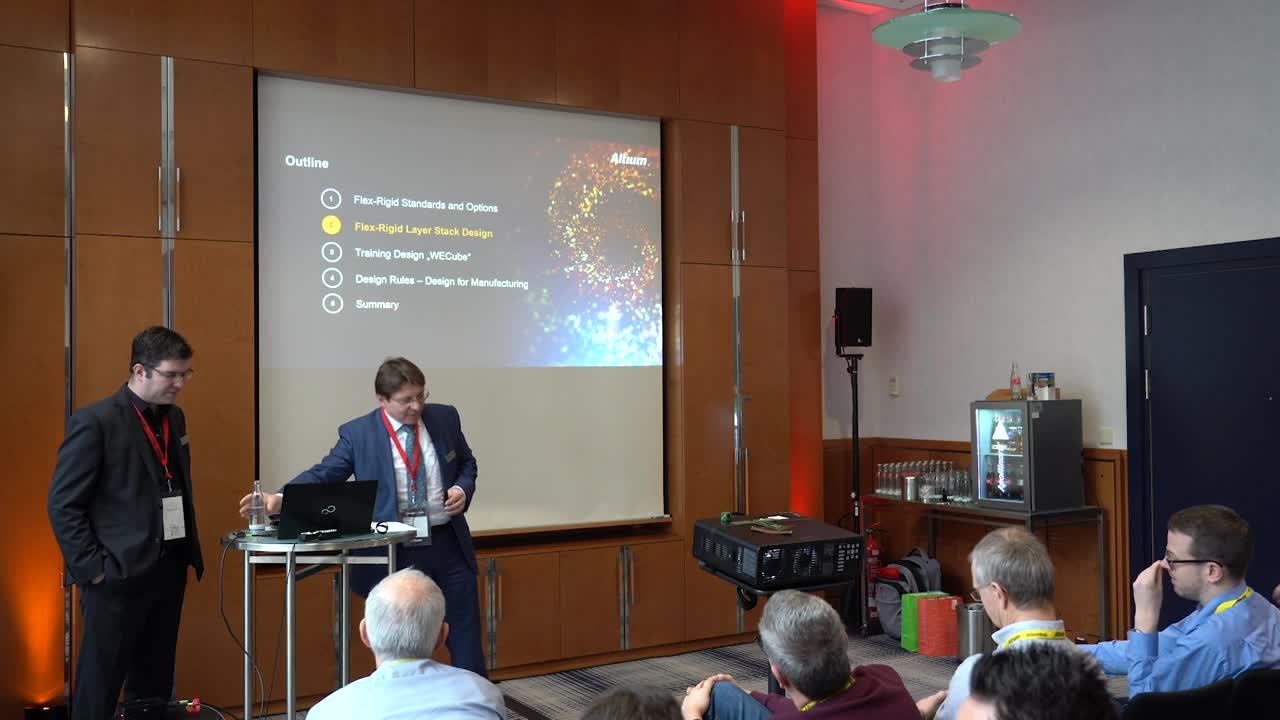Digital Standards and Samples for Rigid-Flex Technology

Rigid-flex technology offers some unique advantages for high reliability applications in miniaturized systems. But getting started can be difficult and the variants and possibilities are diverse. Because of this, standardization is mandatory to meet quality and cost which starts not in production, but with the design.
This presentation will demonstrate how rigid-flex design can be achieved in Altium Designer, while also showcasing some nice mechanical options.
We are also providing our standard stackups for import into Altium Designer, thus saving time and reducing errors. Next, we’ll go over how to implement specific design rules for rigid-flex using the constraint manager.
All of this is intended to help meet customers’ needs in productivity, quality and cost by creating a quality design and providing good production data for the PCB fabricator. This also will enable more and more designers in industry to use rigid-flex technology.
View the presentation slides:
Sign up to pre-register for AltiumLive next year or try Altium Designer today.
About Author
About Author
Andreas Schilpp gained his engineering degree in Applied Physics at University Heilbronn. He gathered practical experience as development engineer in semiconductor industry and as application engineer and laboratory manager in process control technology.
In 1994 he started working for Würth Elektronik CBT as a product manager. He managed a lot of internal development projects and supported many customers in the design-in process using HDI and Heatsink technologies.
As former senior product manager Andreas Schilpp is a well-known specialist for flex-rigid technology for more than a decade. Presentations in design conferences, webinars and trainings have been milestones in the industy. Since 2018 he is working on technical marketing topics.
Related Resources
Table of Contents
<ul><li class="b-hide__item"><a href="#view-the-presentation-slides">View the presentation slides: </a></li></ul>
Multidisciplinary Product Creation
- Align data and context across every discipline
- Collaborate concurrently with no silos
- Make faster decisions with shared visibility
- Stay connected through real-time updates
Learn More


